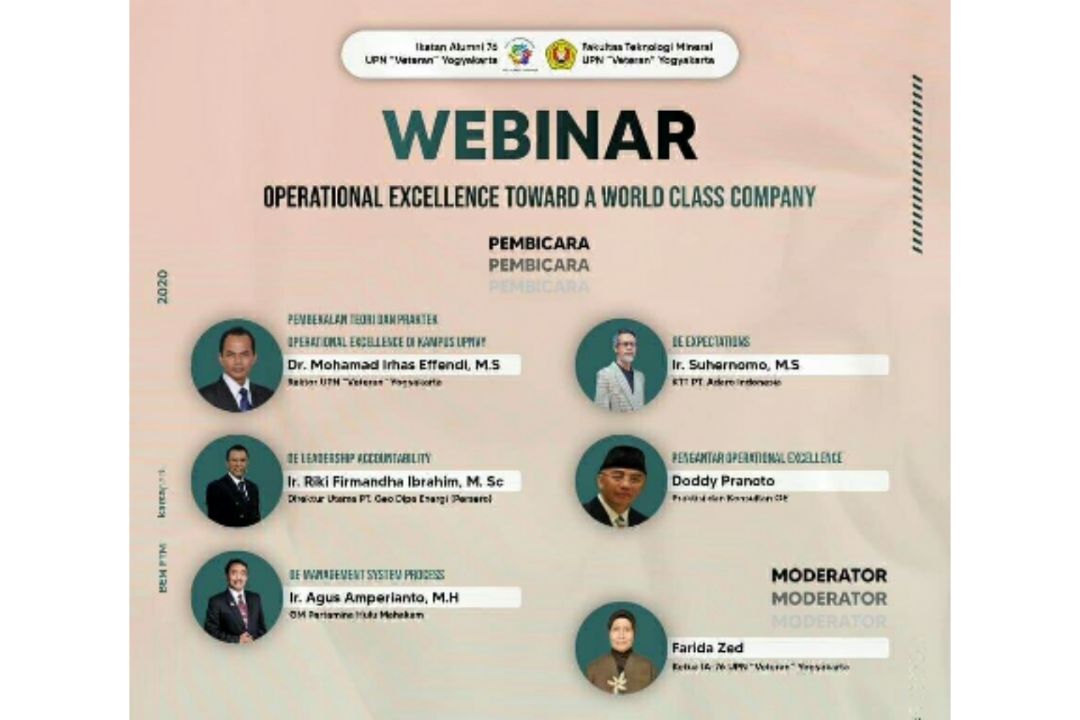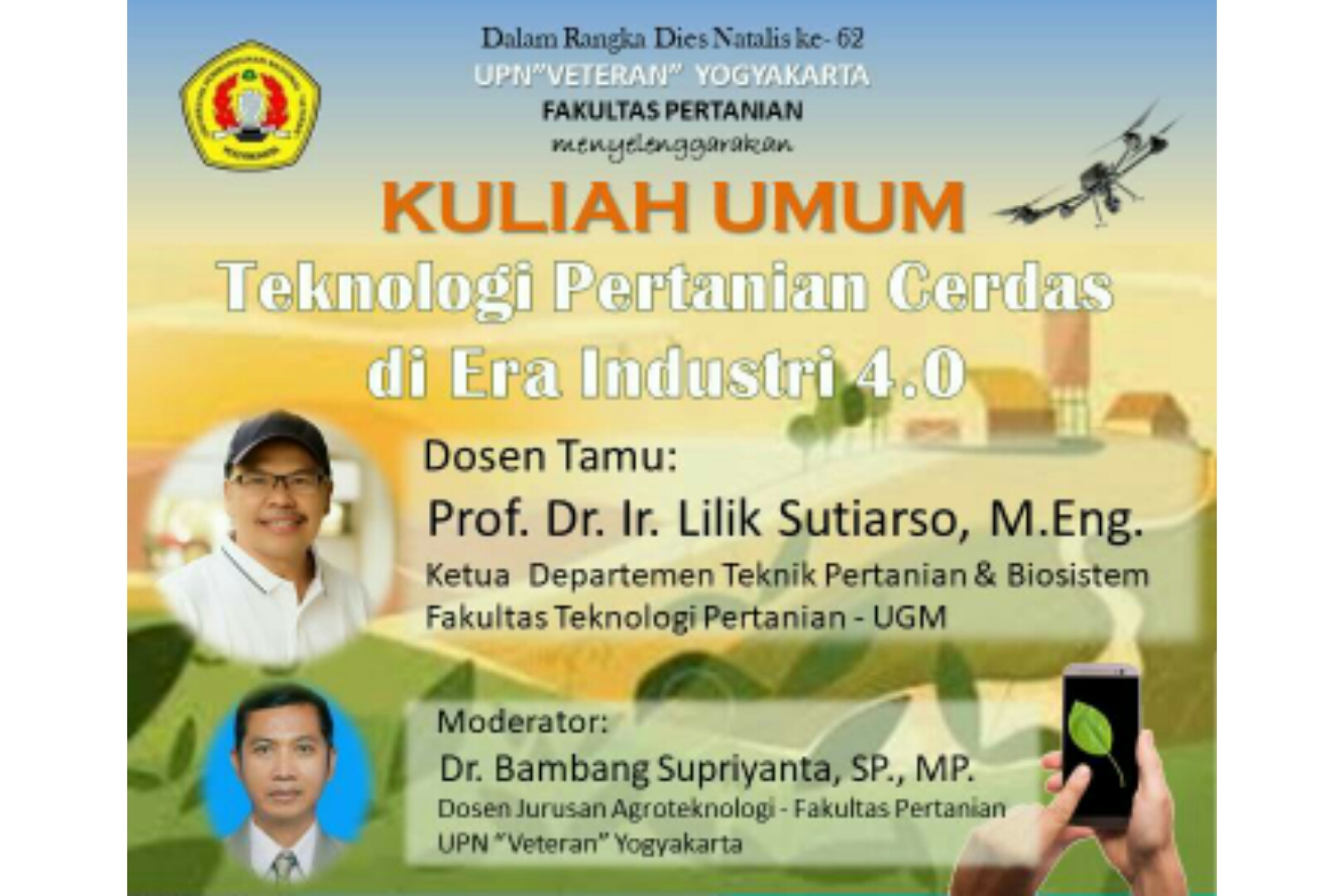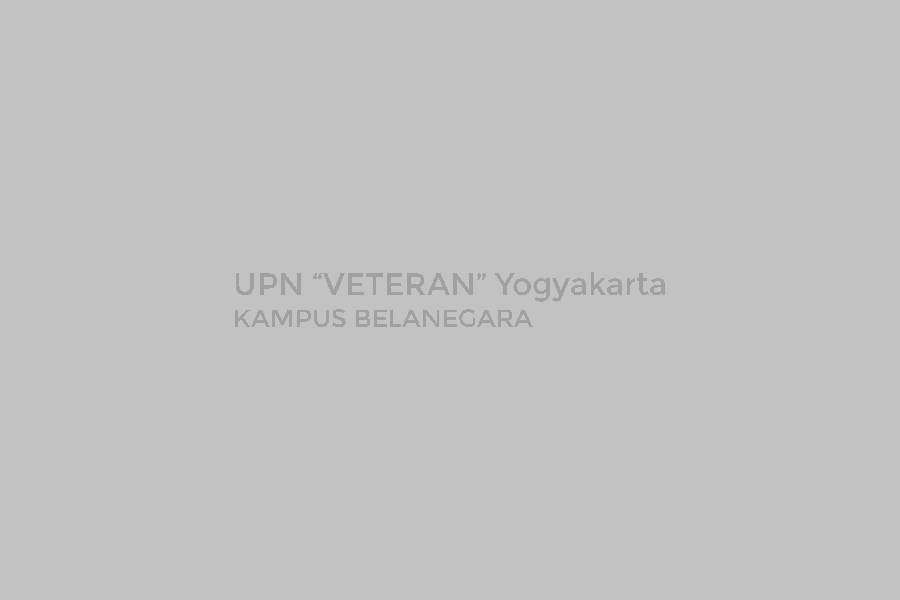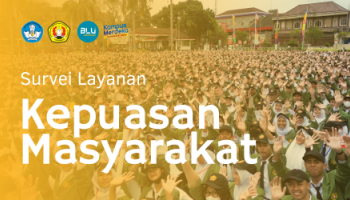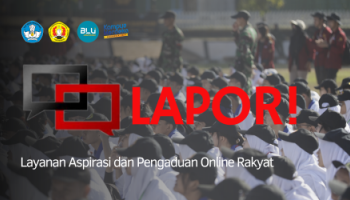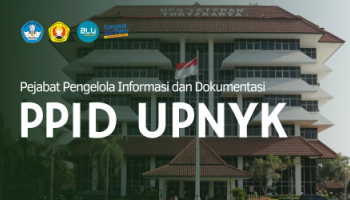Education
Educational Direction
UPN Veteran Yogyakarta educational direction is to develop science and technology grounded on values of discipline, perseverance, creativity, excellence, nationalism, and honesty, in order to support national development through higher education, to create outstanding human resources in the global era, grounded with a spirit of Bela Negara (Patriotism).
Educational Goals
Education at UPN Veteran Yogyakarta aims to:
1. Organizing quality education and teaching, to produce globally competitive graduates with discipline, perseverance, creativity, national spirit, and the ability to serve as a supportive component in the national defense system;
2. Increase the quantity and quality of research to:
a. Support the development of quality education and teaching;
b. Develop and apply science and technology to support community service; and
c. Produce intellectual capital and scientific works to support national development
3. Develop community service activities through :
a. Providing science and technology services to improve community welfare;
b. Enhancing community empowerment; and
c. Enhancing the reputation of UPN Veteran Yogyakarta.
Curriculum
The bases for curriculum development at UPN Veteran Yogyakarta is :
1. The university develops a foundational framework and curriculum structure for each study program.
2. Curriculum development is based on the Indonesian National Qualifications Framework (KKNI), based to national higher education standards to achieve national education goals.
UPN Veteran Yogyakarta Graduate Competencies
1. Graduate competencies must aligns to graduate competency standards.
2. Graduate competency standards are the minimum criteria for graduate qualification, including attitudes, knowledge, and skills as stated in the graduate learning outcomes.
3. The formulation of graduate learning outcomes, as mentioned in point (2), must:
a. Refer to the description of learning outcomes in the Indonesian National Qualifications Framework (KKNI)
b. Equivalent to the qualification levels in the KKNI.
4. The depth and breadth of learning materials, as referred to in point (2), must align with the graduate learning outcomes.
5. The depth and breadth of learning materials for master's and doctoral programs must utilize research results and community service outcomes.
6. The level of depth and breadth of learning materials for each program is formulated with reference to the graduate learning outcome descriptions from the KKNI.
7. The levels of depth and breadth of learning materials are :
a. Diploma three graduates must at least proficient in theoretical concepts in their field and specific skill in general;
b. Bachelor's graduates must at least proficient in theoretical concepts in their field and specific skill in general as well as have a deep understanding of specialized theoretical concepts and skill in specific field;
c. Master's graduates must at least mastery theories and applications in a specific field
d. Doctoral graduates must at least master the philosophy of scientific knowledge and skill in a specific field of knowledge
e. The levels of depth and breadth of learning materials are cumulative and/or integrative.
8. The levels of depth and breadth of learning materials are cumulative and/or integrative.
9. The levels of depth and breadth of learning materials, as referred in point (7), are stated into structured course content.
"
RESEARCH
RESEARCH
As a university founded by warriors and veterans, UPN Veteran Yogyakarta is committed to carrying forward the spirit of perseverance in solving various issues faced by society and the nation, including the challenge of developing science and technological resources to enhance national competitiveness.
To achieve this, UPN Veteran Yogyakarta has set a vision to become a leading university in the development of science and technology, grounded on ˋdiscipline, perseverance, and creativity to support national development.
The priority research fields at Universitas Pembangunan Nasional Veteran Yogyakarta include the following fields:
1. FOOD FIELD
1.1. Modern Biotechnology for the Production of Superior Seeds and Seedlings;
1.2 Food Security and Agriculture
1.3 Nutritional adequacy and stunting prevention"
2.ENERGY FIELD
2.1. Clean Fuels Based on Low/Carbon-Free Renewable Energy;
2.2. Electrical Technology Based on Low/Carbon-Free Renewable Energy;
2.3. Energy Management, Efficiency Technology, Conservation, and Smart Energy
2.4. Biogas Development
2.5. Development of Biodiesel and Bioethanol as Renewable Energy
2.6. Development of Geothermal Energy."
3. HEALTH FIELD
3.1. Technology for the Production of Pharmaceutical (Based on Natural Materials) and Domestic Materials to Strengthen the National Pharmaceutical Industry;
3.2. Health Management During Pandemic"
4. TRANSPORTATION SECTOR
4.1. Infrastructure and Transportation Facilities in Land, Sea, and Air to Improve Capability, Safety, Reliability, and Competitiveness
4.2. Transportation Management."
5. Engineering Focus Areas
5.1. Technology for Handling, Processing, and Packaging for Food, Horticulture, Plantation, Forestry, Livestock, and Fisheries Product
5.2. Information and Communication Technology and Policies to Support Industry 4.0
5.3. Advanced Materials for Health
5.4. Fiber, Textile, and Textile Product Technology
5.5. Machinery Technology for Industry
5.6. Development of Micro-Hydro Electric Potential
5.7. Development of Software, Design, and Fabrication for Geothermal Power Plants (PLTP)
5.8. Development of Fuel Cells, focusing on engineering, new energy source development, and alternative sources of electric power
6. DEFENSE, SECURITY, AND BELA NEGARA
6.1. Border area development
6.2. Development of natural resource potential to strengthen border areas and address multicultural issues
6.3. Mapping of issues related to factors contributing to the diminishing of national ideology
6.4. Deradicalization model for religious ideological doctrines;
6.5. Development of a tolerance model within society
7. MARITIME SECTOR
7.1. Technology for Enhancing Production, Processing, and Distribution of Salt Products;
7.2. Technology for the Protection and Utilization of Maritime Resources.
8. SOCIAL SCIENCES, EDUCATION, ARTS, AND CULTURE
8.1. Educational Policy and Preparation of Intelligent, Healthy, Faithful, and Competitive Human Resources to Face the Industry 5.0 Era
8.2. Policy Research on Political Systems, Democracy, also Regional and Village Autonomy
8.3. Development of Regional and Village Productivity for Quality and Sustainable Economic Growth
8.4. Research on the Advancement of Arts, Culture, and Language
8.5. Research on Strengthening Indonesia’s Role and Interests at Regional and Global Levels;
8.6. Research on Strengthening the Role of Small and Medium Enterprises in Enhancing National Competitiveness at the Global Level
9. MULTIDISCIPLINARY AND CROSS-SECTORAL SECTOR
9.1. Disaster Technology and Management, including Volcanic, Tsunami, Earthquake, and Biological, Chemical, Radioactive, and Food Security (Development of Early Warning Technology, Mitigation & Disaster Reduction, Prevention & Preparedness, Emergency Response, Regulation & Disaster Awareness Culture);
9.2. Environment, Water Resources, and Climate Change;
9.3. Community Empowerment to Increase Socio-Economic-Cultural Resilience for Disaster Risk Reduction;
9.4. Improvement of Disaster Information Systems for Effective Early Warning and Detection;
9.5. Application of Appropriate, Efficient, and Effective Technologies for Disaster Risk Reduction;
9.6. Increase in Oil Production (Reactivation of Old Wells and Enhanced Oil Production)
9.7. Optimization of Mineral Resource Utilization;
9.8. Post-Mining Management;
9.9. Optimization of Regional Development;
9.10. Optimization of Karst Landscape Area Management;
9.11. Optimization of Mountain, Hill, and Artificial Slope Area Management;
9.12. Optimization of Environmentally Friendly Mining Technology;
9.13. Optimization of Minerali Potential Area Management;
9.14. Optimization of Coal Potential Area Management.
"
COMMUNITY SERVICE
COMMUNITY SERVICE
UPN Veteran Yogyakarta implements new paradigm in community service activities that are problem-solving, comprehensive, meaningful, complete, and sustainable, with multiple target service.
These are the reasons for the development of the Community Service Program (PbM).
The target audiences of the Community service program (PbM) program are:
1) Economically productive communities
2) Communities that are not yet economically productive but have a strong desire to become entrepreneurs
3) Economically unproductive communities (public in general).
"
"Community Service targets (partners) among economically productive communities includes : arts groups, fishing groups, farming groups, and livestock groups, with each member demonstrating an economically productive character.
Targeted partners in household industries (home industries) with individual/sole ownership are required to have at least 4 employees outside of family members
"
"Targeted partners in economically productive fields must be groups with at least 5 members, such as neighborhood women’s groups (dasawisma), tourism awareness groups (pokdarwis), PKK community, religious group, housewives’ groups, and others.
Targeted partners among economically unproductive communities may include schools (Kindergarten, elementary, junior high, high/vocational schools), youth organizations (karang taruna), housewives’ groups, children groups, neighborhood associations (RT/RW), villages/sub-districts, health centers (Puskesmas/Posyandu), Islamic boarding schools (pesantren), and others
Issues that must be addressed in the Community Service Program (PbM), especially for economically productive communities or potential entrepreneurs, include production, business management, and marketing. For activities not directly related to economic matters, they must clearly specify the issues prioritized to solve, such as improving pubic services, enhancing community welfare, repairing/supporting service facilities, and others.
Activities carried out for Community Service partners, whether economically productive, economically potential , or non-productive / social activity, must include two activity fields that require different areas of expertise.
"
 English
English  Indonesia
Indonesia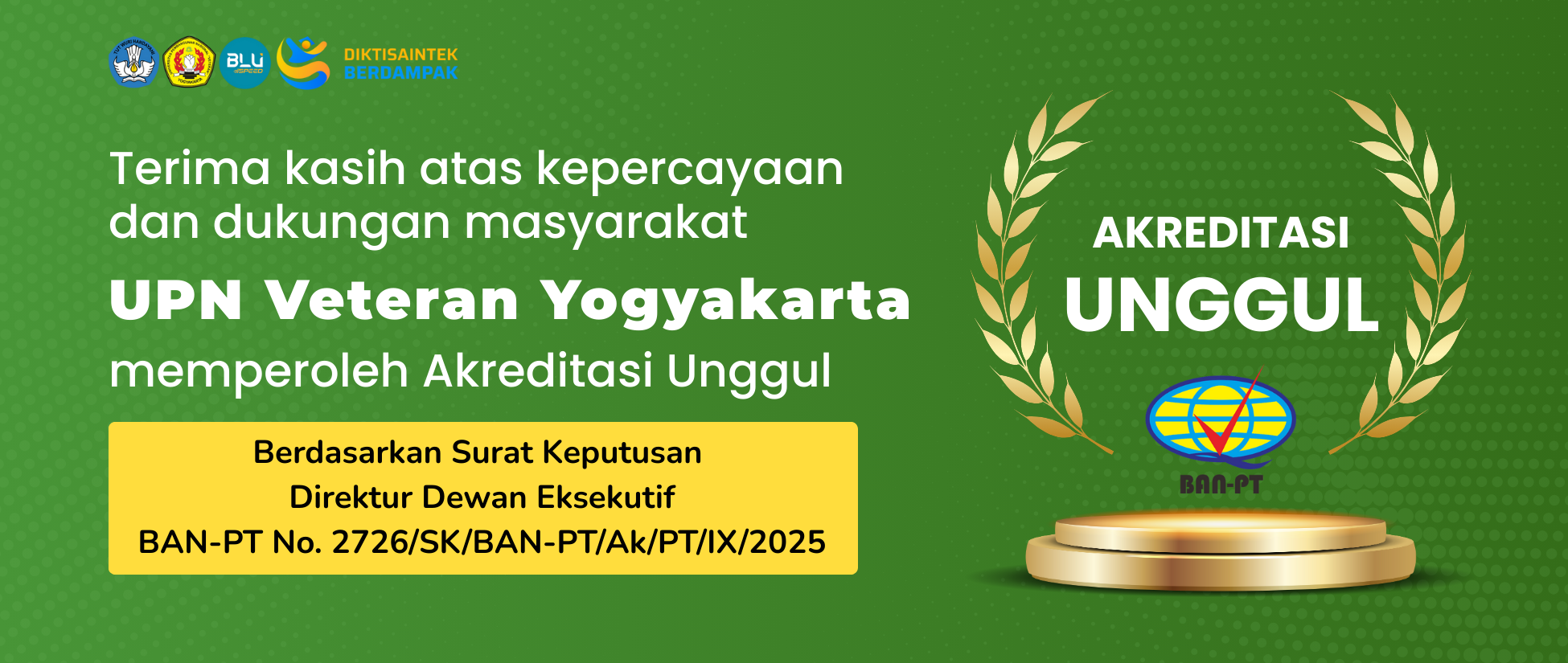
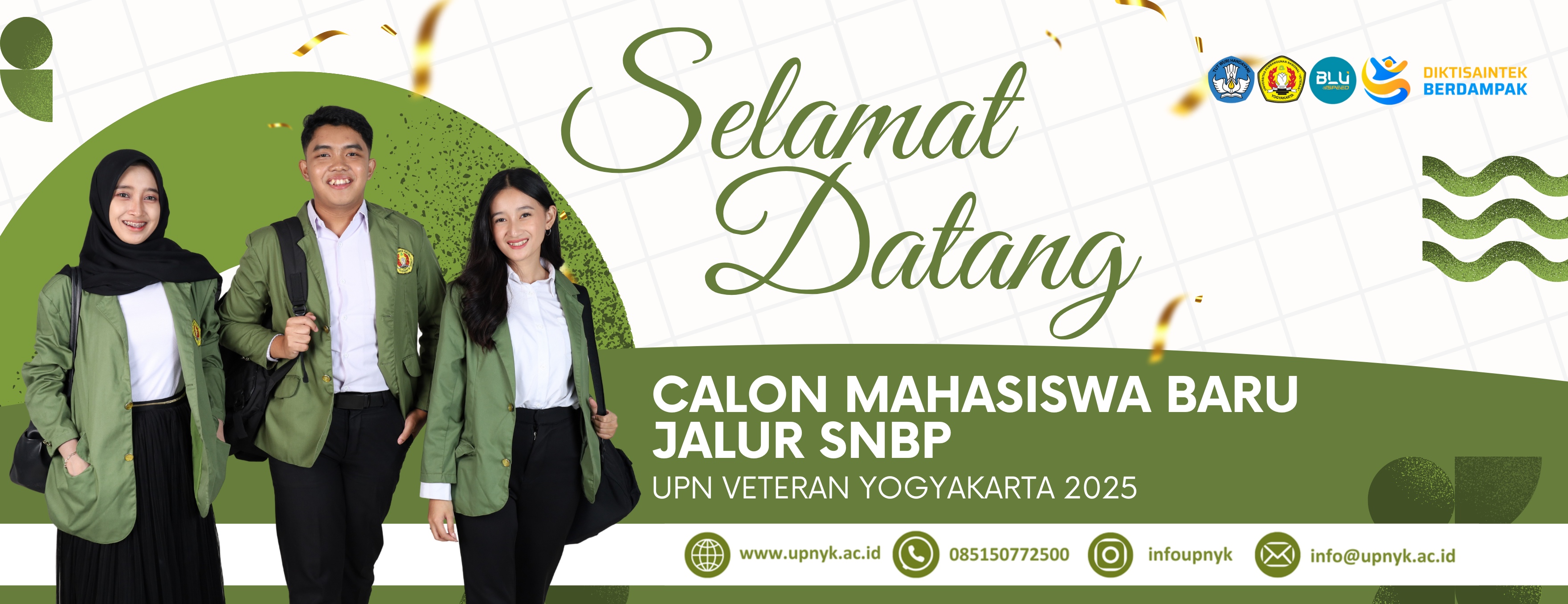
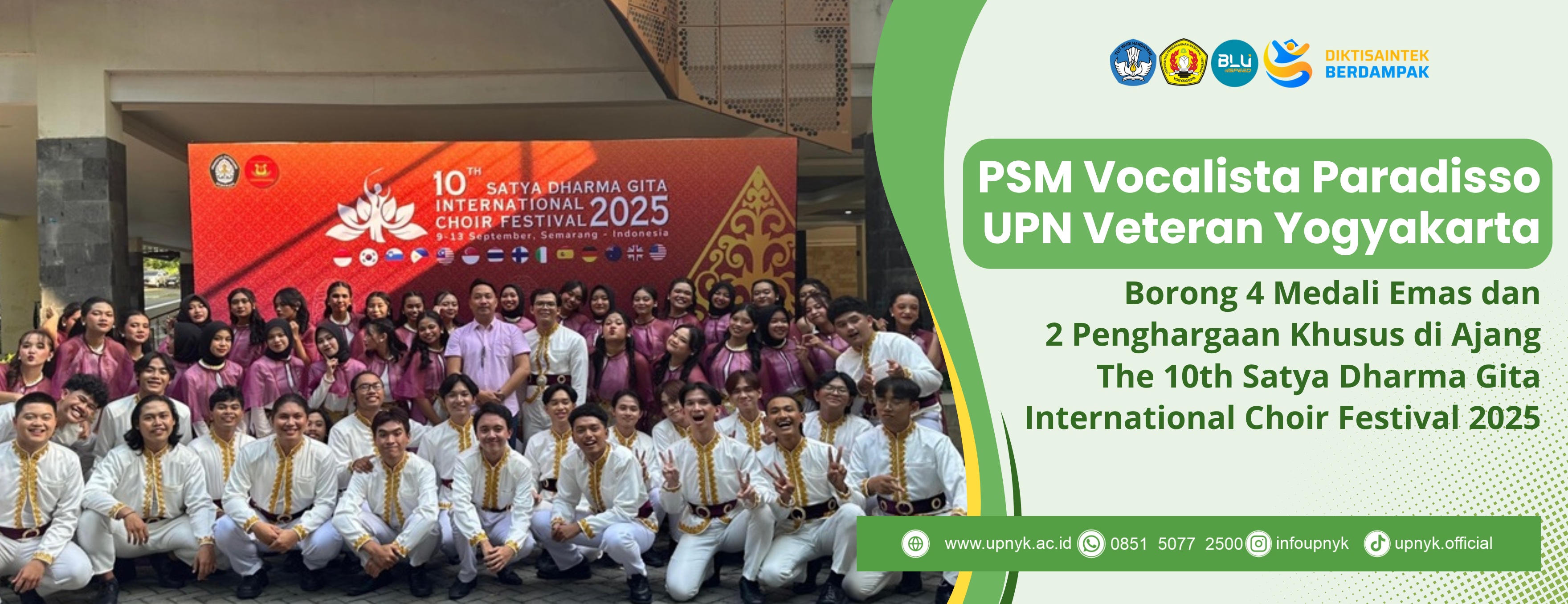
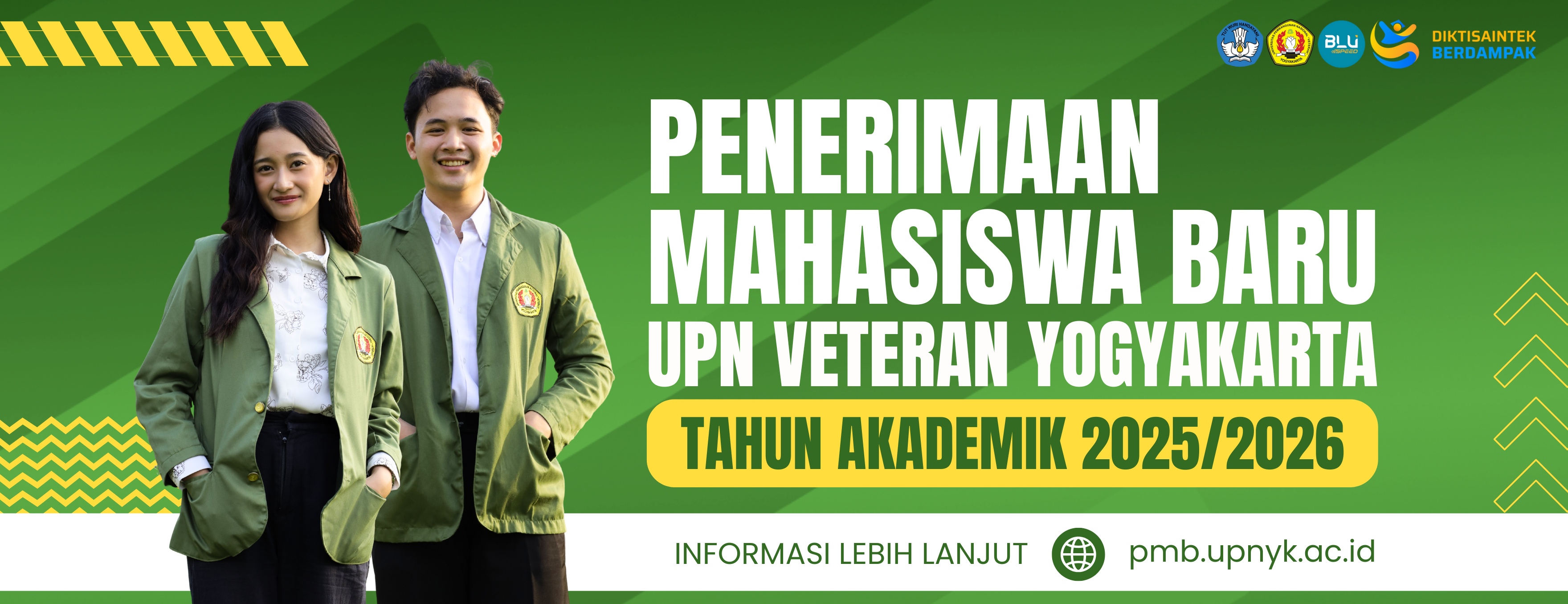
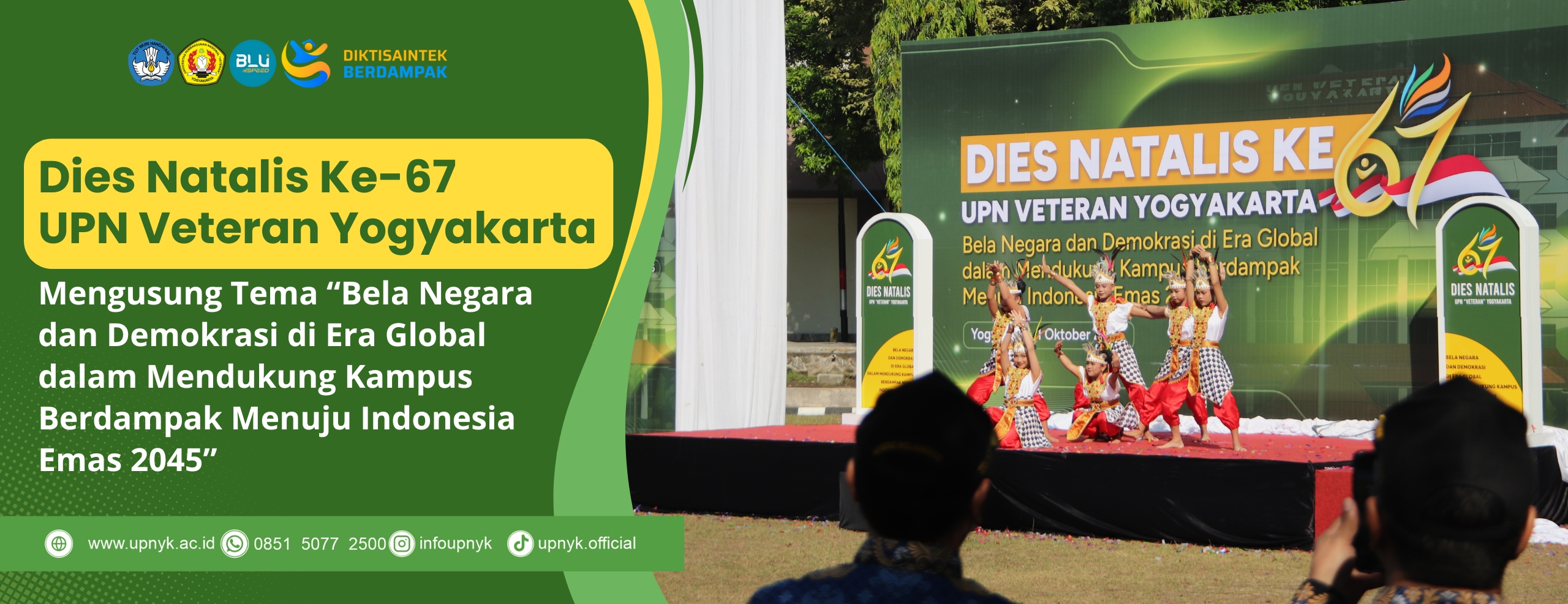
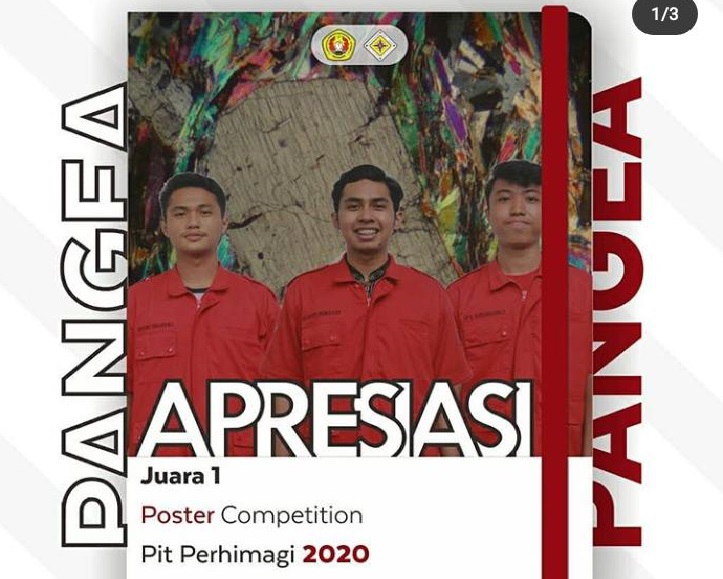
.jpg)
